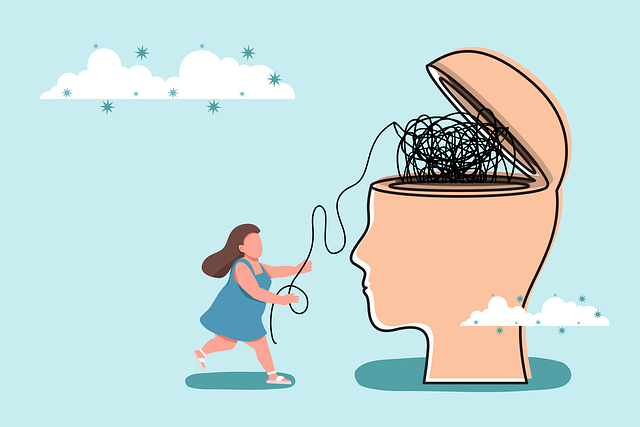Mental health policies are vital for addressing adolescent issues, with evidence-based therapies like Acceptance and Commitment Therapy (ACT) improving treatment availability and quality. Initiatives promoting mental wellness through journaling and trauma support services empower teens to manage their mental health proactively. Despite barriers such as stigma, financial constraints, and limited insurance coverage, advocacy and policy changes, including ACT implementation, are crucial for providing accessible therapy and enhancing adolescent mental health resilience.
Mental health policy analysis and advocacy are essential components of improving youth well-being. This article delves into critical aspects of adolescent mental health, focusing on understanding the impact of current policies and exploring innovative therapies like Acceptance and Commitment Therapy (ACT). We analyze barriers to accessing therapy for teen girls and boys, highlighting challenges in service delivery. Additionally, we present advocacy strategies aimed at enhancing mental health services and share successful policy changes globally. By examining these key areas, we strive to revolutionize youth mental health support through evidence-based practices such as ACT.
- Understanding Mental Health Policy and Its Impact on Youth
- The Role of Acceptance and Commitment Therapy (ACT) in Adolescent Treatment
- Analyzing Barriers to Accessing Therapy for Teens
- Advocacy Strategies to Improve Youth Mental Health Services
- Case Studies: Successful Policy Changes and Their Outcomes
Understanding Mental Health Policy and Its Impact on Youth

Mental health policies play a pivotal role in shaping the well-being of young individuals and their access to essential services. In today’s world, where mental health issues among adolescents are on the rise, understanding and addressing these policies is more critical than ever. The impact of mental health policy extends far beyond legislation; it influences the availability and quality of care for teens struggling with various challenges.
Acceptance and Commitment Therapy (ACT), for instance, has gained recognition as an effective approach to treating anxiety and trauma in young people. By implementing policies that support and fund such evidence-based therapies, governments can ensure better access to specialized treatment. Additionally, promoting mental wellness through journaling exercises and trauma support services can empower teens to take proactive steps towards managing their mental health. These initiatives contribute to a holistic understanding of youth mental health, fostering resilience and overall well-being.
The Role of Acceptance and Commitment Therapy (ACT) in Adolescent Treatment

Acceptance and Commitment Therapy (ACT) has emerged as a powerful approach to treat various mental health challenges in adolescents, offering a unique perspective on fostering resilience and enhancing overall well-being. This form of therapy encourages young individuals to embrace their experiences, accept what they cannot change, and commit to actions that align with personal values. By doing so, ACT promotes self-care practices and coping skills development, enabling teens to navigate life’s difficulties more effectively.
The therapeutic process involves helping adolescents understand and accept their thoughts and emotions without judgment, allowing them to develop a healthier relationship with themselves. This acceptance is a cornerstone of ACT, which then guides teens to define what matters most to them—their personal values—and take inspired action towards those goals. This approach not only aids in managing symptoms of anxiety and depression but also encourages the creation of meaningful lives, something that can be particularly impactful for young people navigating their identities and place in the world. In addition, integrating ACT into mental wellness podcast series production or other self-care initiatives can further reinforce these positive shifts by providing ongoing support and resources for adolescent listeners.
Analyzing Barriers to Accessing Therapy for Teens

Many teens face significant barriers when trying to access therapy, hindering their ability to receive much-needed support for their mental health. One of the primary challenges is the stigma surrounding mental illness, which often prevents adolescents from seeking help. This societal stigma, coupled with a lack of awareness about available resources, can create a formidable obstacle on the path to healing. For instance, some teens may feel ashamed or fear judgment when considering therapy, deterring them from reaching out for professional assistance.
Additionally, financial constraints and insurance limitations play a significant role in preventing adolescent teens from accessing therapy. The cost of treatment can be prohibitive, especially without adequate coverage. Moreover, certain therapeutic approaches, such as Acceptance and Commitment Therapy (ACT), may not be readily available or covered by all insurance plans, making it harder for young individuals to find the right support tailored to their needs. These barriers underscore the need for continued advocacy and policy changes that promote mental wellness, including initiatives like Mental Illness Stigma Reduction Efforts, and accessible production of Mental Wellness Podcast Series to reach a wider audience.
Advocacy Strategies to Improve Youth Mental Health Services

Advocacy plays a pivotal role in shaping mental health policies and ensuring accessible, high-quality services for young people. One effective strategy is to promote evidence-based therapeutic approaches like Acceptance and Commitment Therapy (ACT), which has shown remarkable results in treating anxiety and depression among adolescents. By championing ACT and similar innovative treatments, advocates can drive systemic changes, leading to better-resourced youth mental health programs.
Additionally, encouraging self-care practices such as Mental Wellness Journaling Exercise Guidance and emphasizing the importance of emotional well-being promotion techniques can empower teens to take charge of their mental health. Advocacy efforts should also focus on integrated care models that combine therapy with support services, ensuring a holistic approach to meeting the diverse needs of young individuals. This comprehensive strategy addresses not just symptoms but also underlying factors contributing to mental health challenges in this age group.
Case Studies: Successful Policy Changes and Their Outcomes

Successful policy changes in mental health advocacy often serve as powerful case studies, offering insights into effective strategies that can lead to positive outcomes for vulnerable populations. For instance, the implementation of Acceptance and Commitment Therapy (ACT) as a complementary approach in adolescent mental health services has shown remarkable results. ACT focuses on encouraging self-awareness exercises and fostering self-esteem improvement, enabling teens to manage their emotions and make meaningful changes in their lives. This therapy has been instrumental in preventing burnout among young individuals, addressing the growing concern of mental health burnout in this demographic.
These case studies highlight the impact of evidence-based practices like ACT on improving mental well-being. By integrating such strategies into policy frameworks, healthcare providers can effectively combat issues such as burnout and promote holistic healing. This approach ensures that adolescents receive comprehensive care tailored to their unique needs, ultimately enhancing their overall mental health and resilience.
Mental health policy analysis and advocacy are crucial in addressing the rising challenges faced by adolescent teens. By understanding the impact of mental health policies and exploring innovative treatments like Acceptance and Commitment Therapy (ACT), we can overcome barriers to accessing therapy. Effective advocacy strategies and successful case studies highlight the potential for policy changes to significantly improve youth mental health services, ensuring a brighter future for our young people.










